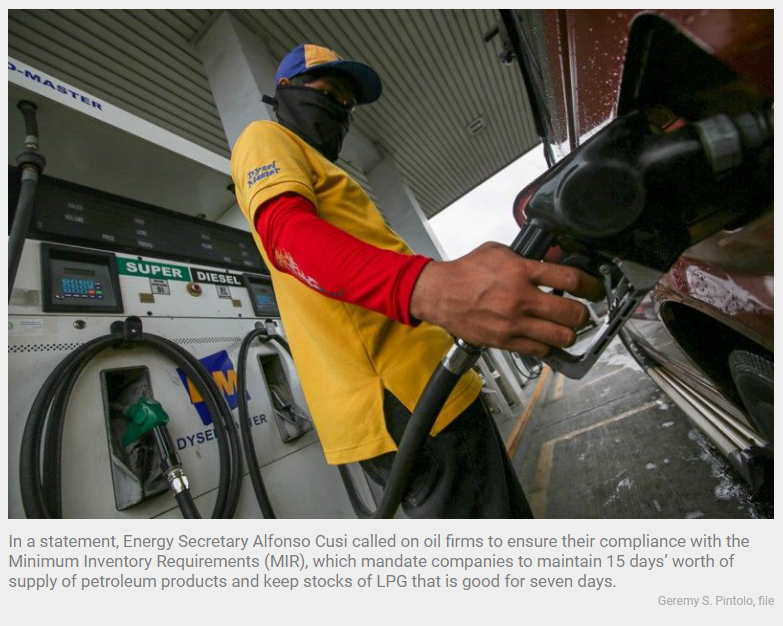Philippines: Oil companies told to prepare for looming price hikes
MANILA, Philippines — The government on Tuesday reminded oil companies to ensure they have enough inventory amid the expected surge in global demand that could cripple supply and push up prices.
In a statement, Energy Secretary Alfonso Cusi called on oil firms to ensure their compliance with the Minimum Inventory Requirements (MIR), which mandate companies to maintain 15 days’ worth of supply of petroleum products and keep stocks of LPG that are good for seven days.
“I am directing all oil companies in the country to ensure adequate supply, and come up with plans to mitigate possible price hikes of oil products in the coming months,” Cusi said.
Based on emerging forecasts from the Department of Energy, global oil demand in the fourth quarter is seen to reach as much as 103 million barrels of crude oil per day (mbpd) in anticipation of winter season, when electricity generation is high for heating. This, while supply is currently only at about 103.22 mbpd.
At the same time, further easing of lockdown measures around the world as vaccination picks up is also fueling demand for oil.
On Monday, OPEC and key allies — known as OPEC+ — decided to stick with their planned hike next month in oil production of 400,000 barrels to bridge the supply gap. But some observers are calling for a higher increase in oil production to meet surging demand.
“I think the DoE move is meant to avoid buying later on at a higher price and add further to inflation expectations,” Jun Neri, lead economist at Bank of the Philippine Islands, said.
“This can mitigate short term risks but by no means can prevent a sustained surge in oil-driven inflation,” Neri added.
For Nicholas Mapa, senior economist at ING Bank in Manila, the looming oil price hikes mean the softer inflation in September might be temporary, although “food prices may offset the pickup in transport and utilities.” Consumer prices softened to 4.8% last month from 4.9% in August.
Ruben Carlo Asuncion, chief economist at Union Bank of the Philippines, agreed with Mapa. “Well, if we look at how global supply is not changing, then, we may expect prices to continue to rise,” Asuncion said. — with reports from Ramon Royandoyan and AFP


 English
English




